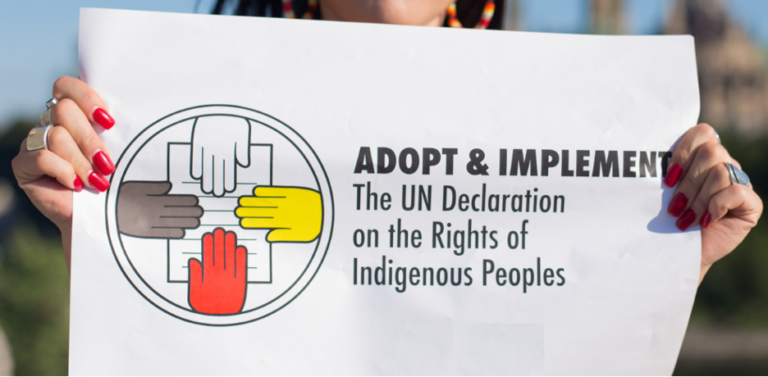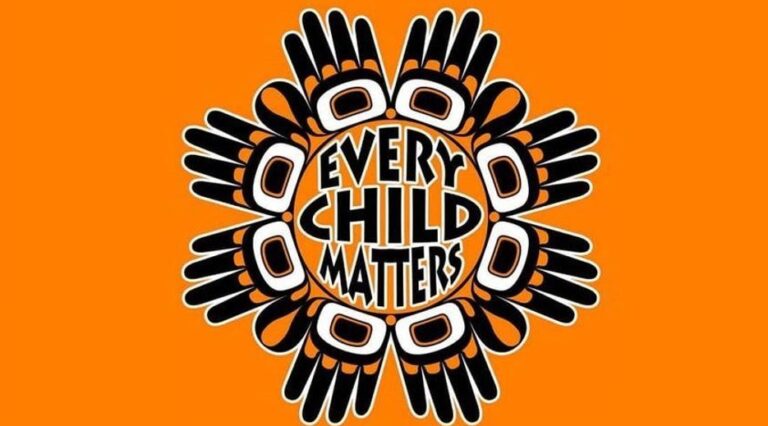We respectfully acknowledge that Columbia College is located on the traditional, ancestral, and unceded territories of the Coast Salish Peoples including xwməθkwəy̓əm (Musqueam), Skwxwú7mesh (Squamish), and Səl̓ílwətaʔ/Selilwitulh (Tsleil-Waututh) Nations. We also want to acknowledge all non-status peoples and members of other bands who live in Vancouver. As uninvited guests, we are dedicated to fostering a reciprocal, respectful, and meaningful relationship with the Indigenous communities, who are the caretakers of this place since time immemorial.
Vision and Mission of the Indigenization Initiatives Office
Vision: to be an exemplary model of higher education institutions in Canada implementing Indigenization in every aspect of education.
Mission: to Indigenize and decolonize education and to foster a relationship between the Indigenous communities and the campus as aligned with UNDRIP, and TRC’s call to action.
Background

The United Nations Declaration on the Rights of Indigenous Peoples (UNDRIP) is an international instrument adopted by the United Nations on September 13, 2007, which preserves the collective and individual rights of Indigenous people on a global level. The UNDRIP safeguards the collective rights that might not be covered in other human rights charters that prioritize individual rights, while also ensuring the protection of the individual rights of Indigenous peoples. This Declaration is the outcome of extensive discussions spanning nearly a quarter of a century among U.N. member states and Indigenous communities around the world.
Canada announced in November 2010 that it would officially support the UNDRIP. On June 21, 2021, the UNDRIP ACT was granted Royal Assent and became effective. This Act outlines a plan for the Government of Canada and Indigenous communities to collaborate on implementing the UN Declaration, focusing on reconciliation, healing, and cooperative relationships. On June 21, 2023, the UN Declaration Act Action Plan was unveiled after extensive consultation and collaboration with First Nations, Inuit, and Métis representatives from all across Canada. The execution of this Action Plan, alongside the UN Declaration, will further the Government of Canada’s ongoing endeavors to dismantle barriers, combat systemic racism and discrimination, bridge socio-economic disparities, and foster greater equality and prosperity for Indigenous peoples. British Columbia was the first Canadian province to adopt the UNDRIP and BC Legislative Assembly unanimously passed the Declaration of the Rights of Indigenous Peoples Act in 2019.
Reconciliation through ‘ReconciliACTION’

True Reconciliation is finding a mutually respectful balance between Indigenous and non-Indigenous people and for that to happen, there should be an acknowledgment of the harm that has been inflicted in the past, atonement for the causes, and action to change the behavior. Columbia College’s commitment to decolonization and Indigenization is rooted in critically introspecting the history of our land and aligned with UNDRIP, TRC’s Call to Action, and Declaration on the Rights of Indigenous Peoples Act (DRIPA). We believe in initiating reconciliation through Action.
Indigenous Initiatives of the College
Columbia College Library has been committed to the Indigenization of the program for over a decade. There is an entire section devoted to resources for Indigenizing the classrooms. These resources include but are not limited to resources on Land Acknowledgements, First Nations’ past and present, Indigenizing classrooms; books of many Indigenous authors in various disciplines and genres; and a diverse collection of films, documentaries, and news pieces.
In 2022, we invited Liimiiuum Hala’ayt Robert Clifton (Director of Instruction- Indigenous Education for Coast Mountains School District) to help create a roadmap for Indigenization at Columbia College. His report recommended starting with several meaningful actions including but not limited to building the relationship with the Indigenous communities, changing the physical space to reflect the Indigenous peoples of Canada, including Indigenization in the curriculum, and integrating Indigenization in college policies and guidelines. We will be sharing more insights on our journey soon.
Columbia College offers a free course for students, instructors, and staff on 4 Seasons of Reconciliation. This course is a ‘ready-to-use’ unit for the online and live classroom. It includes a comprehensive step-by-step teacher’s guide, and a professional development portal helping teachers become comfortable teaching and learning alongside their students. The units also include student online portals and extensive film and video continuing education bonus section on First Nations, Métis, and Inuit. Below is the link for registration.
Instructors and staff across disciplines and departments came together to encourage and support Indigenization in the curriculum and program development. The working group meets at least twice in the semester to discuss the Indigenization process of the college and plan activities. To know more about the Indigenization of the College, contact our Indigenous Initiatives Consultant.
Indigenization and decolonization are ongoing processes and are not a straightforward experience. This guide will help our students to start their journey to Indigenization and learn more about the process. This is a guideline developed to help students familiarize themselves with the land acknowledgment, Indigenous terminologies language usage, and busting some myths regarding the history and presence of this land. This is available through Student Services, Library and instructors. If you have any questions or concerns, you can reach out via the Indigenization Support form for students.
Columbia College’s instructors and staff have made an incredible effort to Indigenize our space and minds throughout the years. If you need help in finding and inviting an Indigenous Elder, scholar, artist, consultant, or storyteller to your class or an event, please fill out this form. If you need help in finding resources for Indigenizing the curriculum or any other support please e-mail our Indigenous Initiatives Consultant.
If you are a student looking for help in your Indigenization and decolonial journey, please contact our Indigenous Initiative Consultant via this form.
Activities and Events
Columbia College is committed to Reconciliation and has organized several events to learn more about the Indigenous communities on this land. For the past few years, several Indigenous individuals have shared their wisdom and stories and conducted activities with the students as a part of Truth and Reconciliation Week. We also ensure the presence of Indigenous scholars, knowledge and history in all our students’ programs and conferences.
Sign up below for e-mails regarding Indigenization Events, Activities, and Lectures.
View our past activities and events here.

